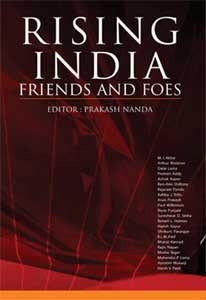About Nalanda, may I say that things happened many centuries past – If it is being rebuilt, that is very good. But, past history has a lot of complications. Tibet is comparatively more recent.
Is the fact of Tibet being a Buddhist country the reason why the West did not take any interest in the Tibetan situation seriously in the past? If Tibet was Christian, would it have received more support?
Ans. I don’t think so. I do not know. … May be they showed no interest because there is no oil! Now the Chinese are finding some oil in Tibet.
Will there be dialogue with China about the Tibet issue? If yes, when and where?
Ans. We are fully committed to our middle way approach. In 2001 we renewed direct contact with the Chinese government. Since then five roundtable talks have taken place – the last one took place last February.
On our side there is no change though the Chinese government is indulging in more serious criticism and more suppressive policies inside Tibet – in spite of that we are fully committed to our policy. I use the word ‘we’ because now for last six years we have an elected political leadership. Prof. Samdong Rimpoche is actually the real political leadership – my position is one of semi-retirement. I am now getting older. Our commitment about promotion of democracy is genuine. Since the sixties we are fully committed to democratisation.
Around the year 2000 we achieved an elected leadership. Now I act like a senior adviser. In most cases Prof. Rimpoche listens to my views, but sometimes he has a little hesitation, or some reservations – I appreciate that.
So I use the word ‘we’ not ‘I’. In the meantime our approach is criticised in the Tibetan community – there are several people very critical of our view, including some of our supporters and Indians. They believe we should fight for complete independence.
 Right from the beginning, around 1974, China was fully involved in the Cultural Revolution. But here in Dharamsala we had a meeting of a few individuals, of our leaders: the Chairman of the exiled Parliament and our Kashag members, and we seriously discussed how to deal with this problem. And we agreed, that sooner or later we will have to talk with the Chinese government. A practical way is to try to gain meaningful autonomy. Since then we have followed our middle way approach. We are still committed to that.
Right from the beginning, around 1974, China was fully involved in the Cultural Revolution. But here in Dharamsala we had a meeting of a few individuals, of our leaders: the Chairman of the exiled Parliament and our Kashag members, and we seriously discussed how to deal with this problem. And we agreed, that sooner or later we will have to talk with the Chinese government. A practical way is to try to gain meaningful autonomy. Since then we have followed our middle way approach. We are still committed to that.




